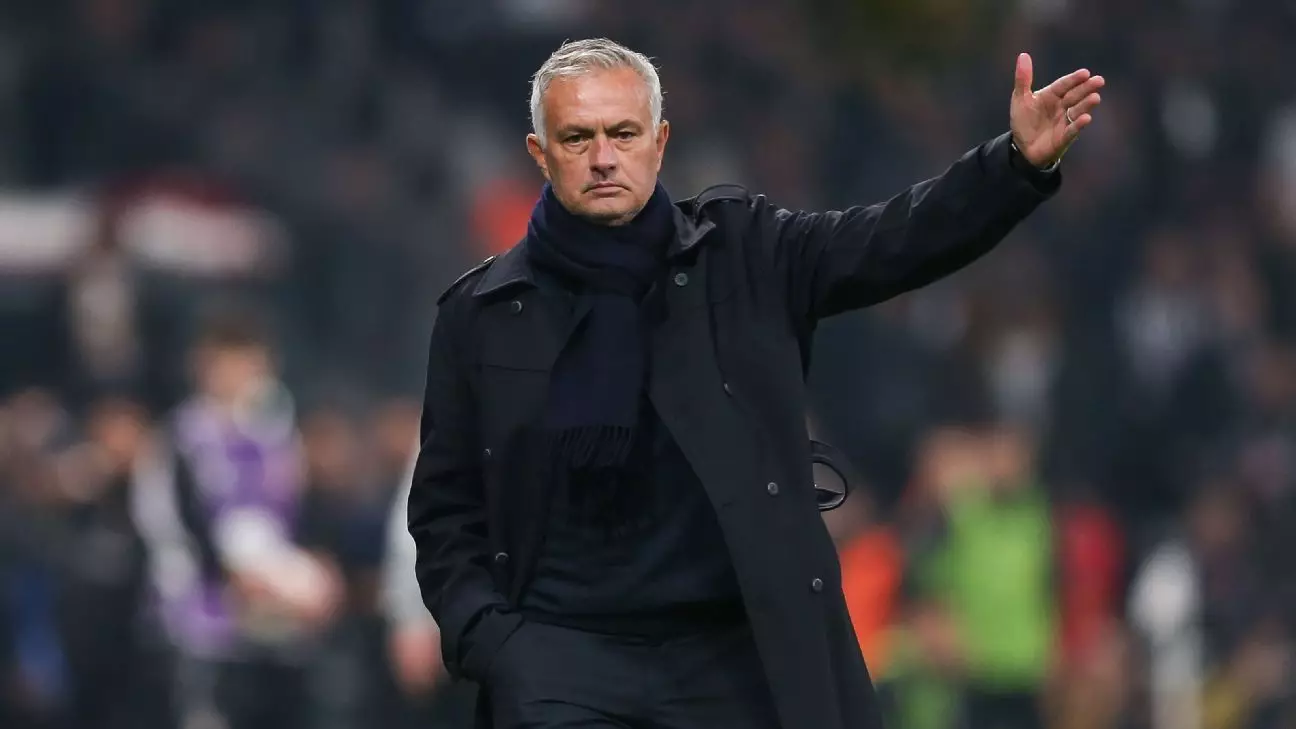In an era where managerial tenure can often resemble a game of musical chairs, Fenerbahce’s coach, Jose Mourinho, has expressed his desire to stay beyond his current contract. This revelation comes on the heels of a disappointing 4-2 defeat against Hatayspor, which has left many fans questioning the direction of the club. Yet, contrary to the expectations that often accompany disheartening performances, Mourinho is steadfast in his conviction. Citing public endorsements from club president Ali Koç, he indicated a mutual understanding regarding his future at the club, reinforcing a surprisingly stable dynamic in a notoriously volatile environment.
Mourinho’s track record speaks for itself; his managerial career is peppered with high-stakes competition at clubs like Chelsea and Real Madrid. However, his persistent criticism of Turkish referees and performance anxieties stemming from recent matches have led to rising discontent among supporters. Mourinho’s declaration, that he recognizes the emotional turmoil fans endure, hints at a nuanced approach to coaching — one that balances assertiveness with empathy. The Portuguese coach’s challenge is clear: to translate this understanding into tangible results on the pitch.
The Quest for Recognition
In the face of disappointment, Mourinho’s candid remarks serve as a reflection of the broader challenges plaguing players and clubs during tumultuous seasons. The implications of a second-place finish behind Galatasaray has shifted focus towards the upcoming qualifying rounds for the Champions League, underscoring the tremendous weight of expectations that accompany Fenerbahce’s storied legacy. With a contract extension hanging in the balance and a hefty €36 million offer to exit mid-season, Mourinho’s commitment to Fenerbahce reaffirms his belief in the project at hand.
This complex dance between stability and pressure raises significant questions — will continuity ultimately bear fruit? The current squad must harmonize ambition with the tenacity required to meet the challenges that await them. Mourinho’s insistence on aspiring to the Champions League, rather than settling for alternatives like the Europa League or Conference League, reflects a thirst for achievement that resonates far beyond personal ambitions.
Bridging the Gap Between Ambition and Reality
Mourinho’s scrutiny of refereeing and officiating, while perhaps a tactical maneuver to deflect scrutiny from his squad, nonetheless hints at an underlying struggle between his high standards and the realities of Turkish football. The desire for consistency is palpable, yet the path to recovery appears littered with obstacles. As Fenerbahce gears up for its upcoming match against Konyaspor, fans are left balancing hope against the backdrop of recent performances that have sown seeds of doubt.
His historical pedigree — boasting multiple European finals — gains importance as he navigates the unique landscape of Turkish football. The stark comparisons between his extensive experience and the collective historical narrative of Turkish clubs spotlight the pressing need for Fenerbahce to recalibrate its ambitions and transform potential into palpable success. Mourinho embodies the unyielding spirit that champions such as Fenerbahce require, yet whether this spirit will chart their course through the inevitable qualifying rounds remains to be seen.
Ultimately, Mourinho’s narrative at Fenerbahce is emblematic of thousands of high-stakes endeavors in sports, where the aggregate of aspiration and reality often decides the fate of clubs, coaches, and communities alike.


Leave a Reply